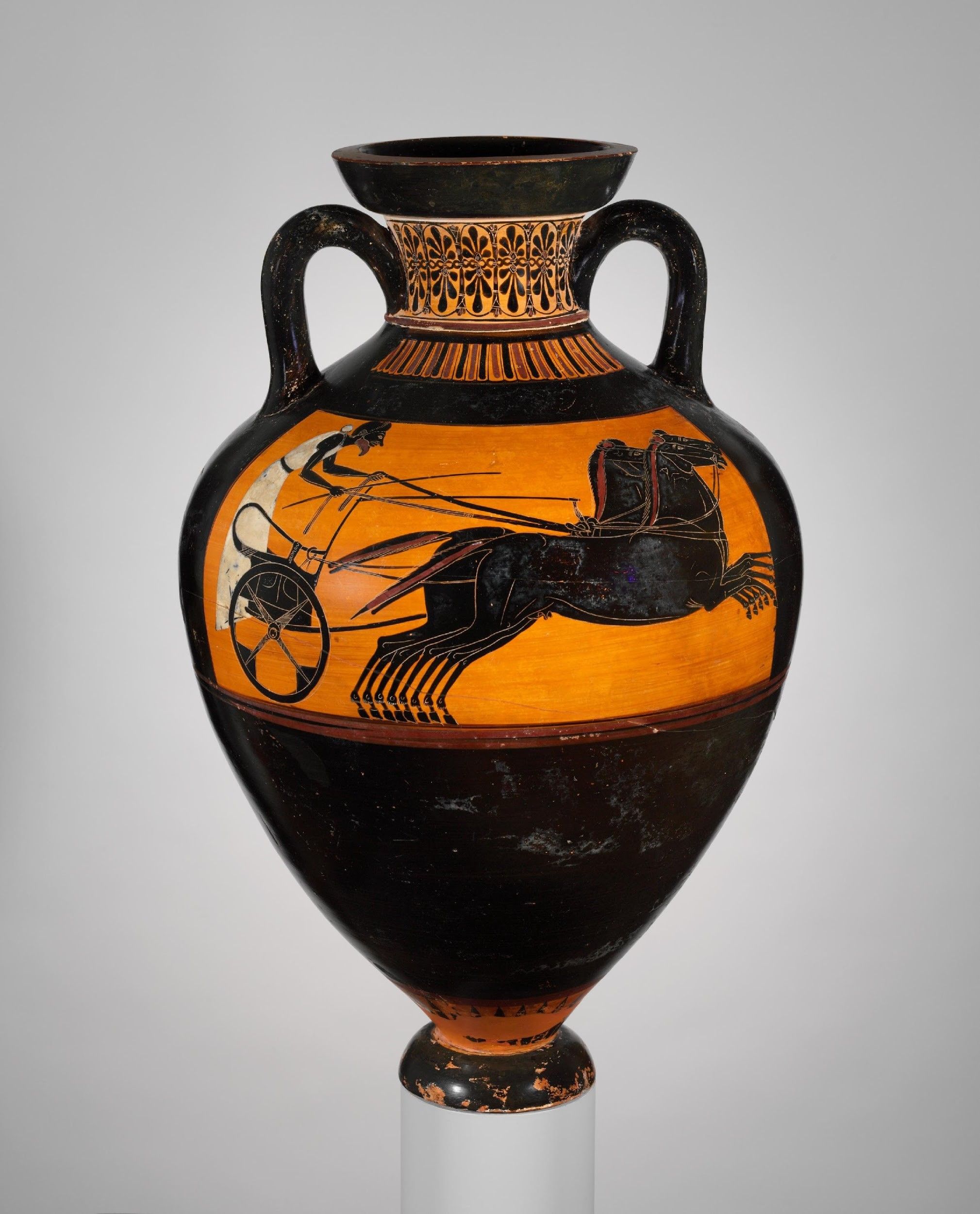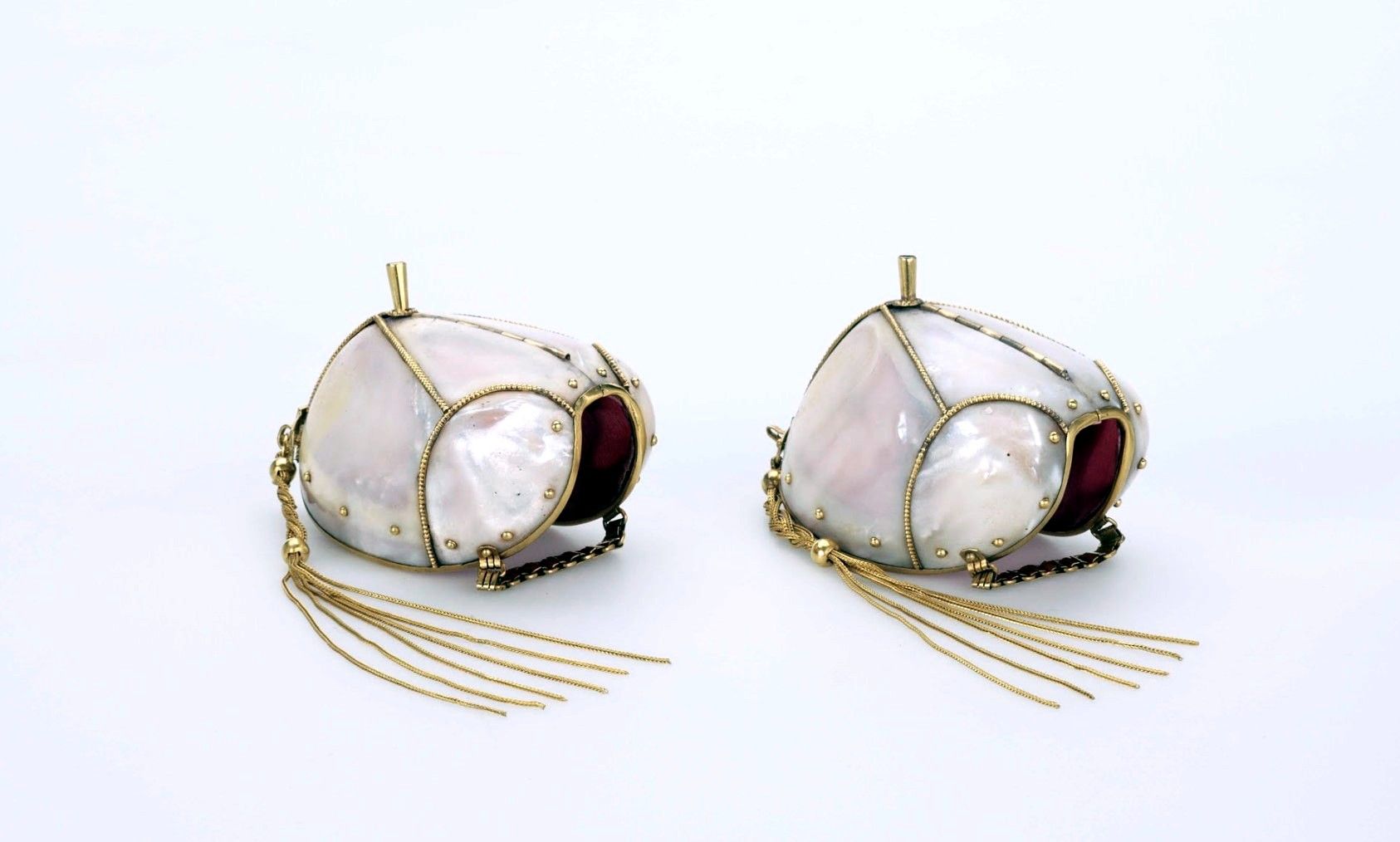Women in the Olympics: Bodies that Dream, Voices that Resist, Histories that Rise
An imagined mural of women in sports via Midjourney.
Sports have never been merely a reflection of physical strength, but a canvas that expresses a human being’s struggle with themselves and with their society.
As for women, their steps were never just athletic movements.
Every step on grass, sand, snow, and across water left a mark on the body of society and reshaped its features.
Questions rang out: Who has the right to be a sports champion? Who is allowed to run and score and win? And who deserves to have their achievements celebrated? Women, who for so long were excluded and kept in the shadows, now bring light and glory.
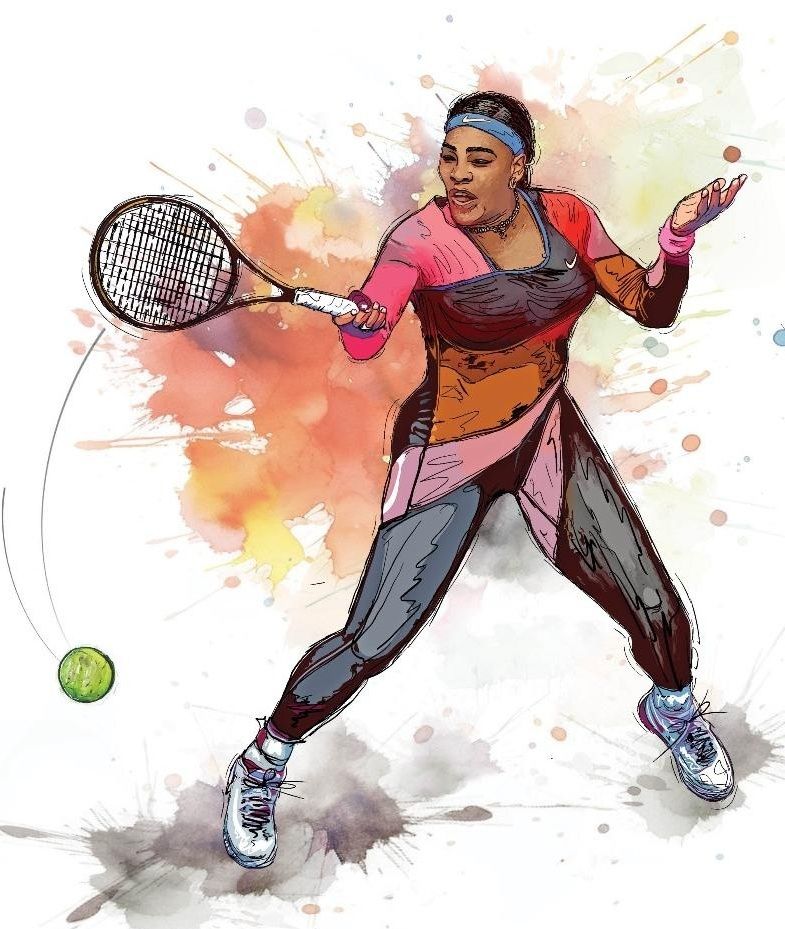
Serena Williams, A Woman Defying Racism. Artist Hisham Mohei.
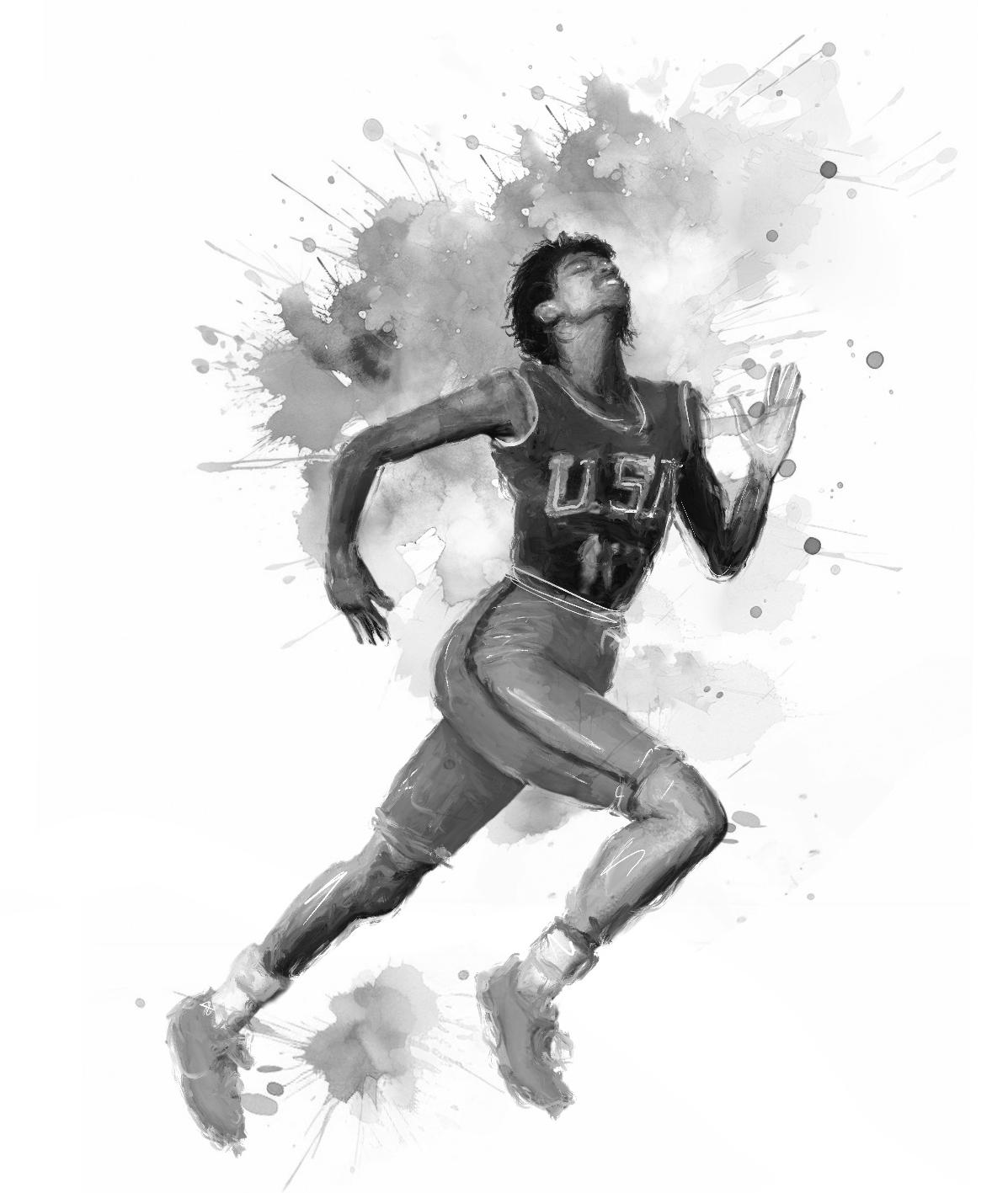
Wilma Rudolph, From Polio to the Running Track. Artist Hisham Mohei.
Women were allowed to participate in the Olympic Games for the first time in the year 1900, and from there their stories began. In tennis, Steffi Graf redefined athletic excellence and was recorded in history as the first to win the Golden Grand Slam, marking the court as a space where merit and skill mattered. Serena Williams did not just carry a racket; she carried the story of a Black woman standing up against racism and prejudice with every powerful shot.
In the field of judo and martial arts, the International Judo Federation will celebrate the forty-fifth anniversary of the first Women's World Championship this coming November. Daria Bilodid carved her name in history when she won her first world title at the age of seventeen, becoming the youngest judo world champion in history. Ronda Rousey forged a new path with her strikes, becoming the first woman to break into the walls of the Ultimate Fighting Championship (UFC).
Wilma Rudolph overcame Polio and made history on the running track, winning three gold medals at the 1960 Olympics. On the same track, Sha'Carri Richardson ran against time itself to emblazon her name amongst the ten fastest women in history. In swimming, Kristin Otto set a record by winning six gold medals in a single Olympics Games, proving that nothing is impossible.
In gymnastics, Simone Biles, the most decorated gymnast in history, did not just leap to set records. She leaped over a long silence surrounding the mental health of athletes. Lindsey Vonn won her gold medal in 2010 when she came down the hill in Vancouver like a hurricane, with a body that knew how to carve its way toward the goal despite the pain, becoming the most decorated female skier in history.
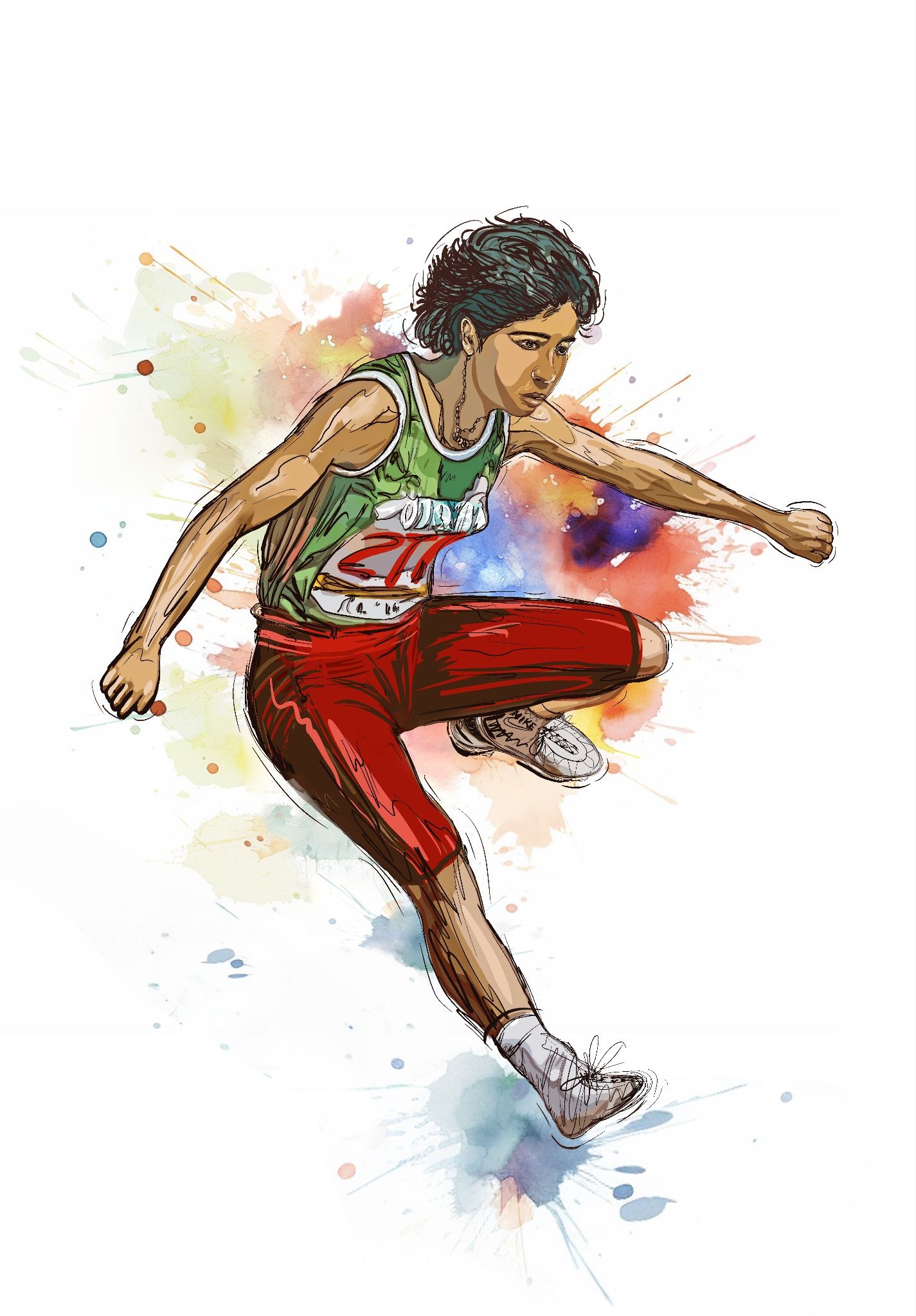
Nawal El Moutawakel, A New Chapter for Arab Women. Artist Hisham Mohei.
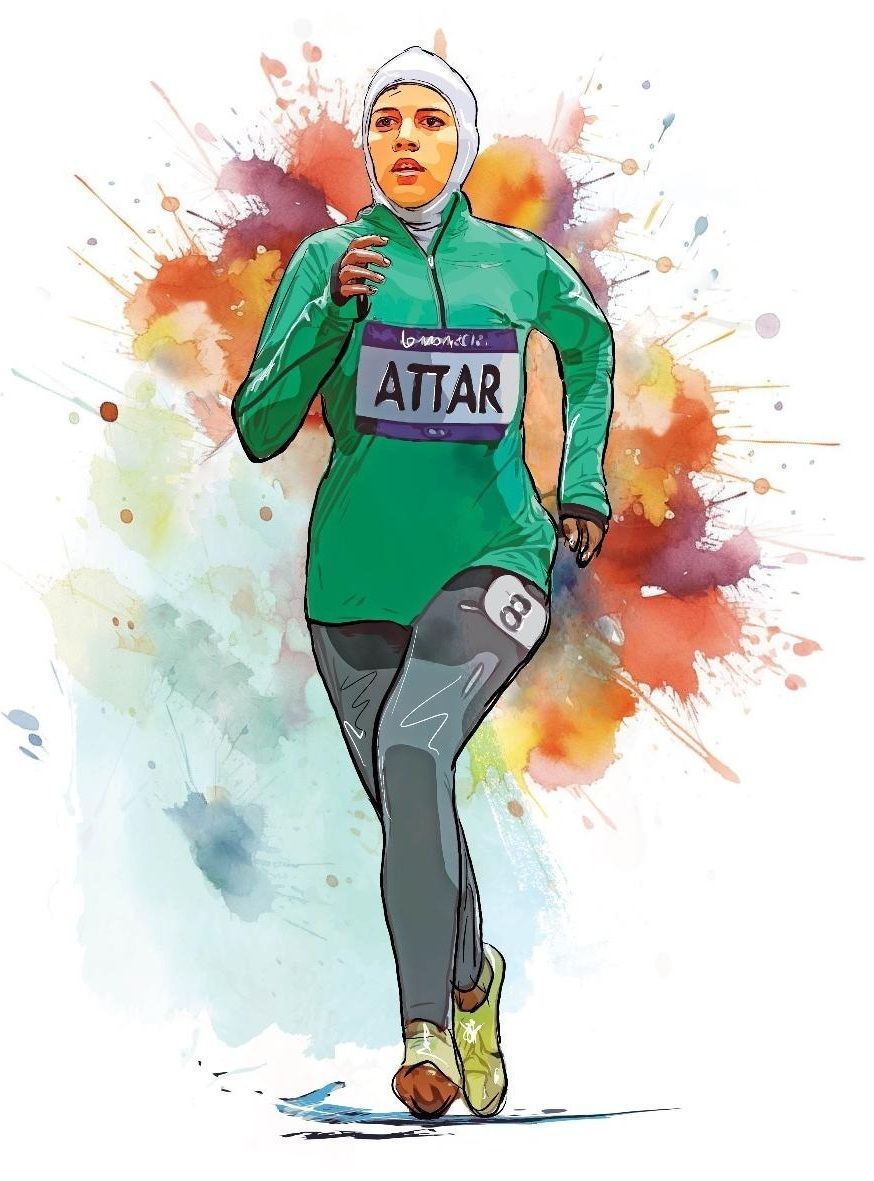
Sarah Al Attar, a woman who made history. Artist Hisham Mohei.
In 1984, Nawal El Moutawakel opened a new door for the women of Morocco and the Arab World after becoming the first Arab and African woman to win a gold medal in the hurdles race. Years later, Ghada Shouaa ran to achieve her own gold medal, bringing her country Syria into history as the first Syrian woman to win an Olympic gold.
In Egypt, the journey of gold medals began in 2004, when Feryal Ashraf Abdelaziz won the first gold medal and dedicated it to her country.
Then came more golds, when Farida Osman, the “Golden Fish’’, won Egypt's first gold medal in swimming championships. In the world of squash, Nour El Sherbini and Raneem El Welily became ambassadors of wonder, playing as if weaving poetry through the air.
In Tunisia, the star of Ons Jabeur shone brightly, transforming her from a player into an icon as the first Arab woman to reach a Grand Slam final in tennis.
In the Kingdom of Saudi Arabia, a long-awaited story began. At the London Olympics in 2012, Sarah Attar (running) and Wojdan Shaherkani (judo) made history as the first two women to represent Saudi at the Olympics. After them came Lubna Al-Omair in fencing, Tahani Alqahtani in judo, Yasmeen Al-Dabbagh in athletics, and Mashael Alayed in swimming,, among many others, all carrying the banner of transformation from a generation that watched sports to a generation that redefined reality.
The Indian runner Mary D'Souza ran in 1952, carrying hopes of a nation with her, and became the first Indian woman to participate in the Olympics. Indian boxer Mary Kom, who feared nothing, achieved six world championships and an Olympic medal. In badminton, Saina Nehwal soared to global fame, representing the ambitions of Indian women.
In East Asia, the story was no different. The first four Chinese women to compete in the newly introduced women’s weightlifting at the 2000 Olympics (Yang Xia, Chen Xiaomin, Lin Weining, and Ding Meiyuan) all got gold! Zhu Ting led her country's national team to win the highest titles in volleyball, restoring the prestige of women's team sports. In Korea, gymnast Yu Myeong-ja was the first woman to bring Olympic recognition to her country. Around the same time, Kim Soo-nyung—known as "The Viper"—clinched the gold medal in archery at the 1988 Olympics, sending a powerful message to the world that women can rise to the top and claim gold with determination and skill.
In Kenya, Tegla Loroupe was the first to raise Africa’s flag in global marathons, later becoming a peace ambassador and advocate for refugees. In Mozambique, Maria Mutola won the first women’s gold medal for her country in the 800-meter race.
At certain moments in history, these women and others managed to redefine what it means to be a woman. They were never just champions honored on podiums; they used sports to reach goals, express themselves, and as a tool of strength to say, “I can!”
They came from everywhere, desert oases, distant villages, and endless cities, to participate in the Olympics. Each woman carved a path, sometimes on the track, sometimes on the fields, sometimes through traditions, and sometimes in the quiet power of numbers. With every victory, every draw, and even every defeat, a new culture was born that said that the female body is something rebellious, beautiful, strong, skilled and capable.
Every gold medal plants a seed of hope in the heart of a little girl holding a ball or running or swimming, showing that there are no limits to the impossible and that there is plenty of room in the story for new successes.
